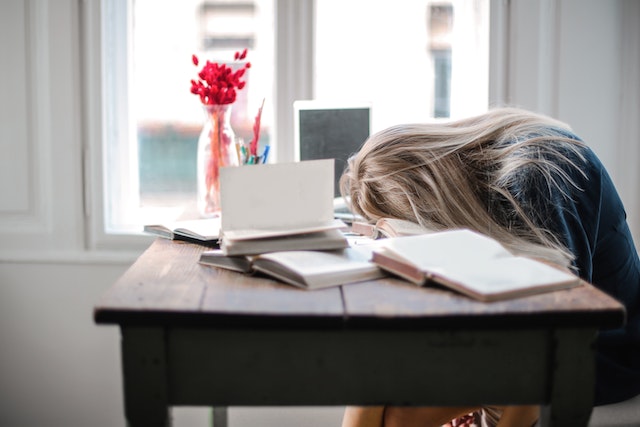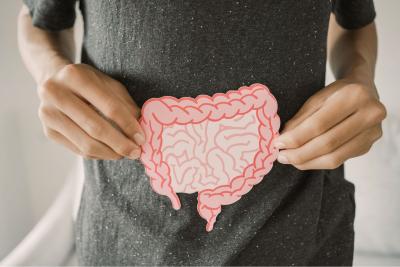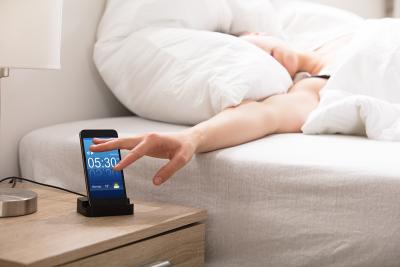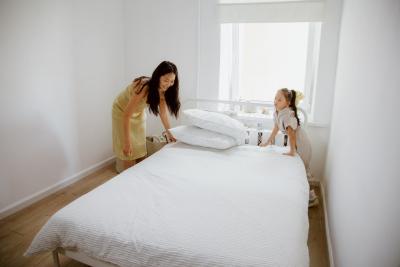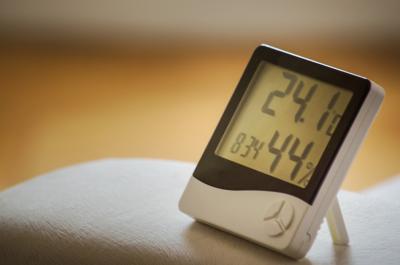There are a number of reasons why you may struggle to sleep at night. Some only last a short period of time and resolve themselves, whereas other causes are longer lasting and require treatment. If you believe your insomnia or restlessness is caused by stress, you may find the following very interesting…
National Stress Awareness Day 2019
Every year, the first Wednesday in November is deemed National Stress Awareness Day. Organised by mental health charity Mind, this day is about recognising stresses, sharing support and advice, and encouraging people to think about their wellbeing.At Happy Beds, we believe everyone needs and deserves a good night’s sleep, so we’ve been chatting to Carole Spiers, CEO of Carole Spiers Group and Founder of International Stress Awareness Week which takes place from 4-8 November 2019, about how to sleep when stressed and have got a few top tips to help you get a more restful night.
How Does Stress Affect Sleep?
Since the dawn of time, humans have had natural instincts, one of which is our bodies’ stress response which triggers physical systems, as well as the release of cortisol by the endocrine system (collection of glands).Once upon a time, this cortisol, and other stress hormones caused a burst of energy which allowed our ancestors to fight off or run from danger. Although this is still possible today, this release is more likely the cause of annoying alertness.Cortisol levels drop down after a stressful event has ended – a process controlled by the hypothalamic-pituitary-adrenal (HPA) access in the central nervous system. However, the HPA also plays a part in the 24-house sleep-wake cycle.So, what does this mean for you? Well, if you suffer from prolonged periods of stress, your HPA will likely be working overtime. This means a shorter night’s sleep, less restorative REM sleep, which in turn can lead to you stressing more.As Spiers told us:
“This may not be detrimental as a one-off incident, however repeating this day in and day out can lead to burnout. If the fight-or-flight response is activated on a continual basis, it can interfere with bodily systems which can increase vulnerability to disease. This explains the link between stress and an increased risk of heart disease, obesity or a stroke, whilst making you more susceptible to infection and less able to recover effectively.”
What Are the Key Signs Your Insomnia or Restlessness is Stress-Related?
Spiers said:
“Ask yourself "when did it start?". Does the sleep problem come and go with the occurrence and disappearance of stress, or does it persist at all times? Identifying if and when you began to experience any of these, can help you pinpoint whether your behaviour (as a consequence of lack of sleep) correlates with stressful periods in your life.“The symptoms below are the result of sleep deprivation. You feel tired or drowsy at any time during the day. You slur your speech. The front lobe of the brain, which is greatly impacted by sleep deprivation, is associated with your speech. You’re hungrier than usual. Sleep deprivation affects two hormones that regulate our appetite - leptin and ghrelin. When we don’t get enough sleep, the level of leptin (the satiety hormone) increases whilst ghrelin (the hunger hormone) reduces. You’re clumsy. Sleep problems can cause issues with motor skills such as being unsteady on your feet, stumbling, or just being generally careless. You are forgetful. Sleep plays a crucial role in memory consolidation and emotional processing. Sufficient rest is key for cementing what you’ve learned during the day. You are irritable and argumentative, and you might ignore what other people are saying about you concerning this change in mood and/or behaviour. You find it difficult to concentrate. This may also affect your ability to make quick decisions. The National Sleep Foundation states that even when moderately sleep deprived, you can reduce your response rate by 50% whilst a sleep-deprived brain can replicate old decision paths without noting how they resulted, leading to the possibility of repeating bad decisions. You are often sick. An insufficiency of sleep can affect your immune system and can also affect how fast you recover if you do get sick.”
How to Sleep When Stressed and Anxious
When you’re stressed, there is nothing worse than someone telling you to calm down or not to ‘lose sleep over it’. You know you need to, but that is easier said than done. Heck! You can be stressed about being stressed! However, effective stress management techniques can be extremely beneficial.It also helps to understand why you’re stressed, in order to treat it more effectively. For example, if you’re overworked, speaking to your manager may help, or, if you have many woes, picking up some extra hours at the office could help.Here are a few other ways to relieve stress and, hopefully, get you a better night’s sleep: Try thought management – Everyone processes situations differently, but often this will involve a mental conversation with yourself where you weigh out the pros and cons and the associated options. This may take just a split second, but thought management teaches you to recognise stress signs and to reroute your thoughts before you can become anxious or panic.Typically, this involves looking out for thoughts about how things should be or over generalisations. However, this is not the only mental activity you can do. As Spiers said:
However, this is not the only mental activity you can do. As Spiers said:
“Relaxation will counter the physiological effects of the fight-or-flight response. Implementing activities or formal relaxation techniques might bring you a sense of relief. Or, simply sitting down for a minute with your eyes closed and thinking about relaxation can help.“Similarly, mindfulness encourages you to pay attention to the present moment. Stressors tend to revolve around worries about the future, or over-analysing past actions and decisions. You can focus on being present formally, such as meditation, or informally, such as going for a walk.”
Ask for help – We have all heard the saying “a problem shared is a problem halved” and this is often the case when you are stressed. Simply discussing your concerns or anxieties often feels refreshing but having help to tackle whatever is causing you stress can also feel like a weight has been lifted off your shoulders.Make yourself comfortable – When stressed, you’ll likely find it more difficult to settle and get comfortable at night. If you have an old and unsupportive bed, then this will only compound the issue further, so a new spacious king size mattress may do you wonders.Furthermore, Spiers advises:
“Make sure that your bedroom is quiet, comfortable and not too hot. Your air-conditioning should be no higher than about 18 C. Obviously, noise should be kept to a minimum, and the room should be kept dark.“If you have your phone next to your bed, you’re not consciously switching off, keeping yourself on constant call. Also, TFT digital- lit computer screens have been found to disrupt the sleep-promoting neurons in your brain.”
For more information on sleeplessness and tips to help you nod off, take a look at our blog post: Why Do I Toss and Turn All Night? We Asked an Expert


